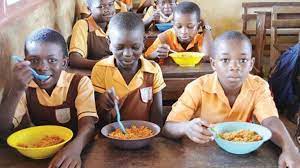By Adoyi M. Aba
As the nation marks another milestone in its journey in democracy, Governor Ibrahim Gaidam of Borno state joins millions of Nigerians to acknowledge the progress and challenges that the country has seen so far and to pray for a much better Nigeria going forward.
The governor stated this in a statement issued by Special Assistant on Press Affairs and Information, Abdullahi Bego.
He noted that this year’s Democracy Day, like others over the previous years, had come at a time of great concern amongst many Nigerians about the state of the nation and, in particular, about the state of public safety and security.
He said in Yobe, as in many states in the North-east and around the country, countless people had fallen victim to the “senseless and unspeakable violence perpetrated by criminals and insurgents.”
He said: “Just a few days ago, some of our law enforcement officials working hard to ensure the maintenance of peace and security were killed in an encounter with Boko Haram insurgents in Buni-Yadi Town of Gujba local government area.”
The governor, the statement added, expressed heartfelt condolences to the families of those patriots who were killed in the service of their fatherland.
“And, like many other incidents before it, Buni-Yadi is once again a reminder of the serious threats posed to our collective security by Boko Haram and the need for the entire country to come together to address them.”
He urged the people of the state to trust in the Almighty God and to continue to pray in homes, mosques and churches for divine deliverance from the myriad challenges that “we face as a nation.”
He further urged the people not to waver in their support for our security and law enforcement agents, saying that “with prayers, support to security agents and communal vigilance, the prevailing security challenges will be met and addressed.”
Gaidam assured the people that despite the security challenges, his administration would remain focused on its goal of improving their living standards by building on the modest progress that “has been made so far in the areas of healthcare delivery, education, housing, roads construction, agriculture and youth and women empowerment, amongst others.”



